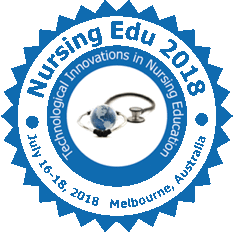
Darlene Mensinger
Geisinger Medical Center, United States
Title: Piercing cries from the NICU, born dependent: neonatal abstinence syndrome. What are we doing wrong?
Biography
Biography: Darlene Mensinger
Abstract
Back ground and purpose: Infants exposed in utero to opiates may exhibit signs of withdrawal after birth leading to neonatal abstinence syndrome (NAS). Infants with NAS have a higher rate of complications, increased length of stay and consume a substantial amount of resources.
There has been a dramatic increase in NAS over the last decade. Significant increases in substance abuse conditions over the last decade has generated a critical community dilemma for maternal and child health care, infants exposed in utero and born addicted. Neonatal Abstinence Syndrome (NAS) has challenged practitioners to improve quality, safety and effectiveness of care to exposed newborns and their families. The objective of this quality improvement initiative was to improve quality, safety & efficiency of care for infants and families affected by Neonatal Abstinence Syndrome (NAS), decrease length of stay, provide staff education, and develop a policy involving all disciplines involved allowing for identification, treatment and follow up.
We had no formal education program and no standardization of care among all disciplines and providers.
Budget resources: Costs were kept to a bare minimum. The three hour meetings were conducted every six weeks for one year. The meetings were held at lunch time to maximize cost effectiveness. The cost of lunch and booklet development were minimal.
Impact/results: We were able to standardize diagnosis and treatment to improve recovery and decrease length of stay. The staff was provided formal education about addiction, non-pharmacologic treatments, and accurate use of assessment tools, a new policy, best practices and research. The new policy, included standardization of pharmacologic treatments, weaning medication and discharge medication criteria. The policy included specific use of breast milk and breast feeding. New education booklet for use inpatient and outpatient along with staff education. Maternal fetal consults were developed for women on prescription opioids, methadone, Subutex and/or Suboxone.
Implications for family support: The staff is now able to provide an educated non-judgmental approach to NAS infants and their families. Providing non-judgmental treatment allows families an experience that better facilitates bonding and care for the infants, which improves long term outcomes. Providing families with accurate information prior to and after birth fulfills the need for truthful communication and leads to the families being better educated and contented with the infant’s treatment and outcome.

